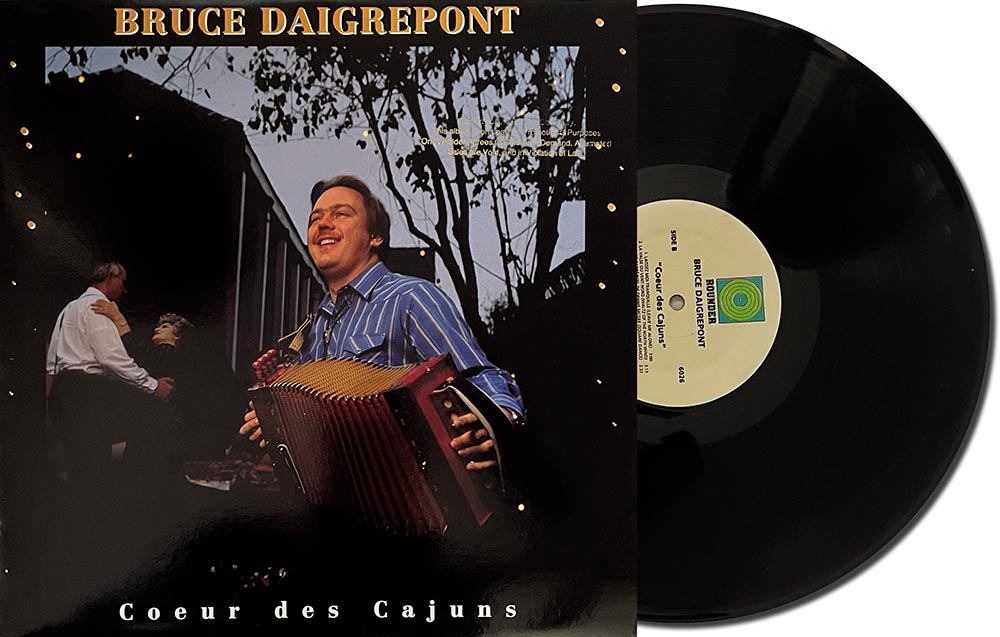|
I like Bruce Daigrepont’s singing voice a lot. When I played this recently acquired vinyl record from 35 years ago, I was blown away. Reviewer Ron Wynn wrote in 1989 Bruce Daigrepont’s second album for Rounder was even more traditionally Cajun than his award-winning first effort (Stir Up the Roux released in 1987). The title track and other works such as “Les Mains du Bon Dieu,” “Acadie a la Louisiane” and “Laissez Moi Tranquille” presented tales of Cajun life and times ranging from struggles to triumphs, and were sung with power, earnestness and verve. His accordion playing was equally assertive. Artists such as Bruce Daigrepont indicate that the future is bright for Cajun music. Indeed it has been. LINER NOTES
Louisiana is unique in producing musical talents because we have seen in every generation musicians that stand far above the rest. Bruce Daigrepont is one of those musicians. Stir Up the Roux, Bruce’s first album, was winner of the Cajun French Music Association’s 1988 Le Cajun Award for Album of the Year. Born and raised in an area where Cajun is not the most popular style of music, he brought to the Crescent City a growing number of devoted fans. They have been listening and dancing to his music for years. Bruce’s Sunday fais do-do at Tipitina’s has become a tradition. I first met Bruce Daigrepont in 1981 when he visited me at KRVS (Lafayette, LA), shortly after his 45 r.p.m. release of “Bayou Pon Pon” on the Bourre label. Bruce is a young, intelligent, talented musician and composer who impressed me with his knowledge of his French American (Cajun) heritage and history. There is evidence of this in his song “D’Acadie, a la Louisiane,” where he sings of the forced exile of the Acadians from Acadie (Nova Scotia), Canada. Bruce Daigrepont’s talent excels in his composition of “Arc en Ciel” (Rainbow), where he sings of true love being as difficult to find as a four leaf clover. Story songs based on fact are not new to Cajun composers, but had been ignored for many years in Louisiana French music. Bruce tells us a true story (“Les Mains du Bon Dieu,” The Hands of the Good God), about a woman he knew who loved his music. He learned that she was dying of cancer. He and his band visited her to play a few songs and cheer her up, but it was she who impressed them with her great courage and love of life. From this experience came the words, “She touched my heart with her courage. She was not afraid. She was so brave. Don’t weep for me, but come and sing. It’s contentment you can give me, and on that day she waltzed into paradise.” On a lighter note, in “Coeur des Cajuns” he sings that the joy of life is in the accordion, the beautiful songs, and the hearts of every Cajun. The most impressive thing about Bruce is that he composes most of his music in our Cajun French language, and that, for me, is a good definition of Cajun. — Pete Bergeron, Director of French Programs, KRVS, Lafayette, Louisiana
0 Comments
Leave a Reply. |
Jim HanceStories about Cajun and Zydeco artists and their music. Archives
March 2025
|

 RSS Feed
RSS Feed

